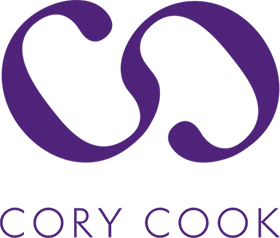Do I still have your full attention?
See if you can get through this post without doing or thinking about anything else.
Sounds easy, right?
Try it.
Already you may be thinking about an appointment you have this afternoon or the unread emails filling your inbox. Or, perhaps you’re reading this post while on a phone call or walking down the street.
We all do it. Physically we’re here, but mentally we’re elsewhere. We’re preoccupied with everything we need to do, and we’re trying to do too many things at once.
The result?
- We’re missing out on the present.
- We’re not performing to our greatest ability.
- We’re not fully engaging with others.
- …to name but a few!
Yes of course, life is distracting. But not beyond our control.
Pause for a moment and answer this question: What impact could you make personally, professionally or otherwise if you devoted your undivided attention to your current task, or whoever you’re with?
Challenge yourself to stop and focus in the here and now, on one thing at a time. I wager you’ll see a marked improvement in your productivity and even experience time slowing down.
Have a heart to heart with your technology.
Are you using technology on your terms? Or allowing it to run rampant across your day, dragging your attention with it?
If we don’t control when and how we use our fabulous gadgets, they really can take over.
How often are you interrupted by an alert in the middle of a conversation, or in the midst of drawing up that important client proposal?
How often do you interrupt yourself to sneak a peek at what may, or may not, have just come through the airwaves?
Stop the behaviour by stopping the source.
At minimum, we have the power to disable and silence those pesky pings and alerts. Even if only temporarily when we really need to focus. Do it. Your brain will thank you for the mild reprieve!
Is that enough? I say take it a step further and lay down some rules. Set some boundaries or curfews on the usage of those screened devices. It’s easier to guard your full attention for what matters most when technology is removed from the equation.
For example, you could instruct ‘No Devices’ before 8am, after 8pm, or during any meetings or mealtimes. If you’re feeling particularly daring, take an ‘extreme’ step further and fully disconnect one full day each week.
Sound outrageous? Give it a shot. These are examples, you can craft a guideline that fits your work and home life.
Remember, technology is meant to support us, not take over our lives.
I’ll just answer this email while I take this call.
We all know how distracting it is trying to hold a conversation with someone who’s not fully present. It makes little difference whether they’re sitting in front of you, or at the other end of the phone.
When someone is mentally elsewhere, it’s pretty transparent, isn’t it?
Bear that in mind. If you can detect when someone is disengaged or preoccupied, likewise they won’t be fooled if you act the same way. Especially if the sound of keyboard clicking is audible in the background – no one is fooling anyone!
If you’re hard-pressed to get work done when a call comes through, save yourself and the caller by suggesting another time to speak when you can devote your full focus. You’ll make greater progress on your work and gain a greater connection with that person when you can speak without distraction. The caller will feel important and appreciate the attention.
You have some of my attention, just not 100% of it.
Now, answer this honestly. When meeting someone in person, whether socially or for business, where is your phone? Resist the temptation to put your phone on the table, or to bring it out of your suit pocket or handbag.
Unless you’re expecting an important family phone call, switch it off and put it away. Otherwise the message is, “You have some of my attention, for now, but not not really all of it. I’ll soon be checking for something I deem more important or interesting which may come along in the next thirty or sixty minutes we’re together.”
Aim to schedule your correspondence around your meeting times to avoid such distraction. In the instance you truly must attend to an expected call, text or email during the meeting, establish this up front and suggest a time and duration at which point you’ll stop for a pause. This way at least the interruption will be anticipated, allowing for full attention given during the remainder of the meeting. Remember, exceptional circumstances only.
When you’re present and engaged, you’ll glean much more from your interactions. Plus your full attention is the greatest show of respect.
Pay attention to your attention.
Be present in the here and now.
Give your undivided focus.
Give whatever you are doing and whoever you are with the gift of your attention. -Jim Rohn


Comments are closed.